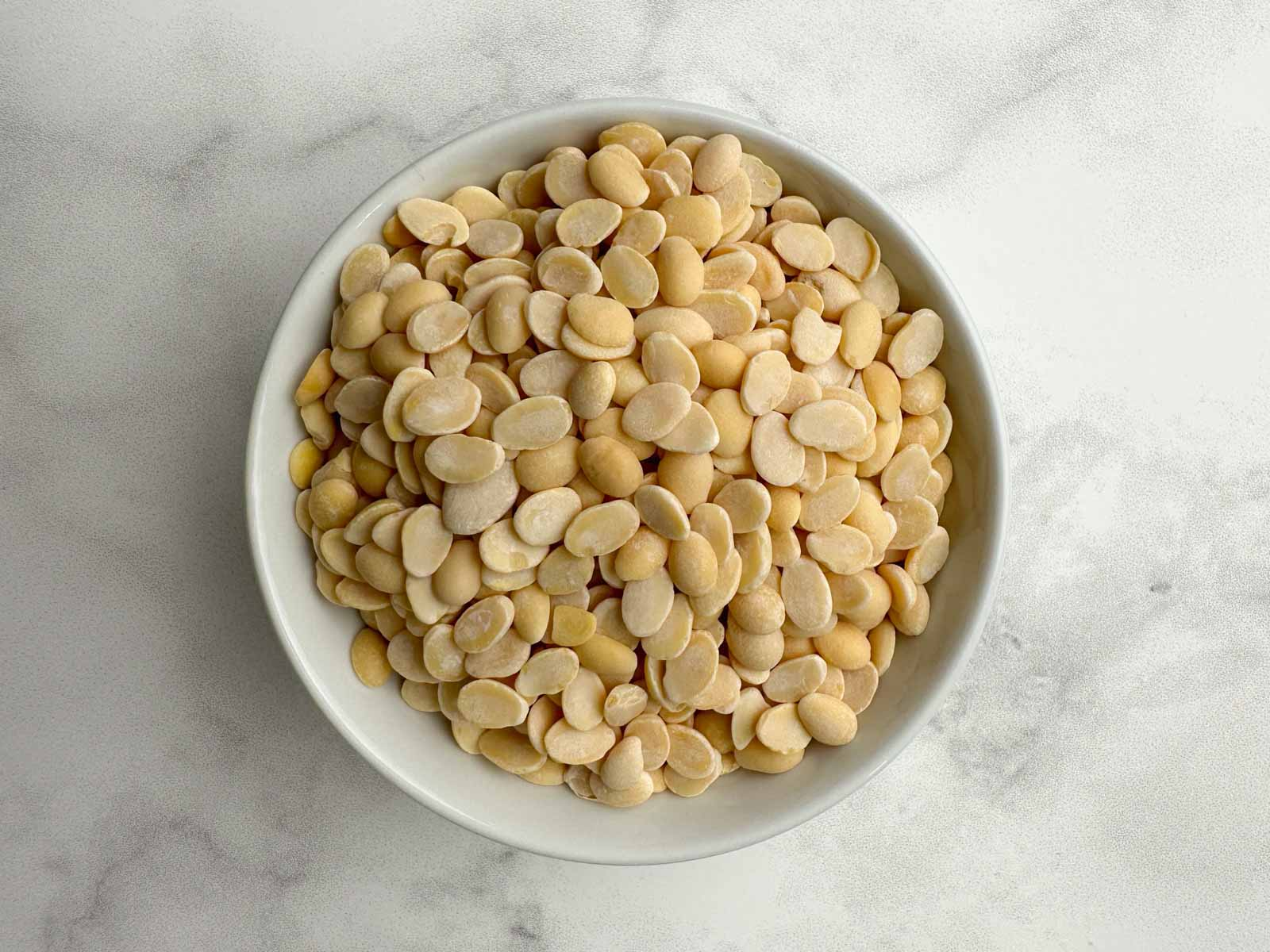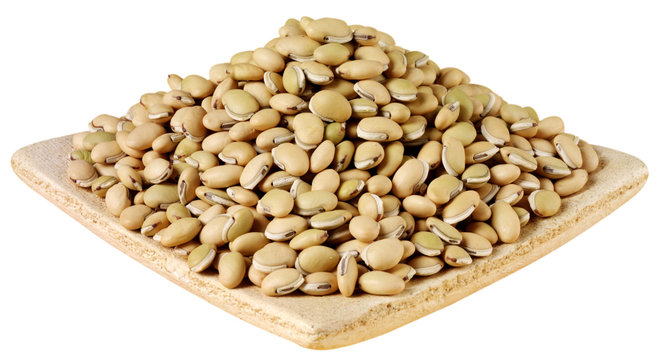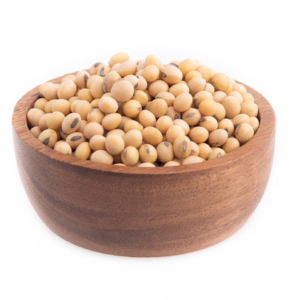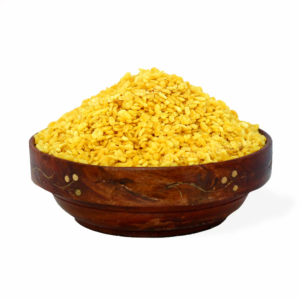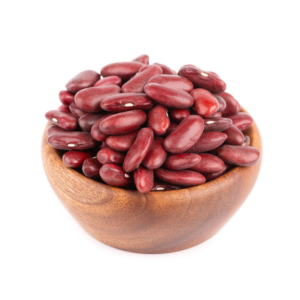Description
Fava beans are large, flat, green or brown beans that grow in pods. After being harvested, they are often dried and sometimes peeled before being used in cooking. Dried fava beans are a staple ingredient in many Middle Eastern, Mediterranean, and Indian dishes. They are also rich in proteins, dietary fiber, vitamins, and minerals, which makes them an excellent plant-based food source for vegetarians and vegans.
The beans can be cooked in various ways, including boiling, steaming, or sautéing, and they are often used in soups, stews, salads, or purees.
Nutritional Profile of Fava Beans (Val Dal):
Fava beans are packed with essential nutrients, including:
- Protein: Fava beans are an excellent source of plant-based protein, which is crucial for muscle repair, tissue growth, and overall body function. One cup of cooked fava beans can provide around 13 grams of protein.
- Dietary Fiber: Fava beans are high in fiber, which supports healthy digestion, helps control blood sugar levels, and contributes to weight management by promoting satiety.
- Vitamins: Fava beans are a good source of B-vitamins, particularly folate (Vitamin B9), which is essential for cell function, DNA synthesis, and overall energy metabolism. They also contain Vitamin C, which supports immune function, and Vitamin K, which is important for blood clotting and bone health.
- Minerals: Fava beans contain significant amounts of minerals such as iron, magnesium, potassium, phosphorus, and zinc. Iron is particularly beneficial for preventing anemia, while magnesium supports muscle and nerve function.
- Antioxidants: Fava beans are rich in antioxidants such as flavonoids, which help protect the body from oxidative stress, reduce inflammation, and lower the risk of chronic diseases.
- Carbohydrates: Fava beans provide complex carbohydrates, which offer a steady source of energy, without causing the blood sugar spikes that refined carbs can lead to.
Health Benefits of Fava Beans (Val Dal):
1. Rich in Plant-Based Protein:
Fava beans are an excellent source of protein, making them an ideal food for vegetarians and vegans. They help with tissue repair, muscle growth, and maintaining a strong immune system. Including fava beans in your diet can ensure adequate protein intake, especially when meat is not part of the diet.
2. Supports Digestive Health:
The high fiber content of fava beans promotes healthy digestion by increasing the bulk of stool, preventing constipation, and maintaining regular bowel movements. Fiber also supports gut health by feeding beneficial bacteria in the intestines. It may reduce the risk of digestive disorders like irritable bowel syndrome (IBS) and diverticulosis.
3. Boosts Heart Health:
Fava beans are rich in fiber, potassium, and magnesium, which support heart health. Potassium helps regulate blood pressure by balancing the effects of sodium, while magnesium aids in maintaining a healthy heart rhythm. Fiber helps lower cholesterol levels, which reduces the risk of heart disease. The antioxidants in fava beans also help reduce inflammation and oxidative stress, which are contributing factors to cardiovascular problems.
4. Aids in Blood Sugar Regulation:
Fava beans have a low glycemic index (GI) and are high in fiber, making them beneficial for regulating blood sugar levels. They help slow down the absorption of sugars into the bloodstream, which prevents spikes and crashes in blood sugar. This makes fava beans a good food choice for people with diabetes or those looking to stabilize their energy levels throughout the day.
5. Helps Prevent Anemia:
Fava beans are a good source of iron, a mineral that is crucial for the production of red blood cells and preventing iron-deficiency anemia. Consuming fava beans along with a source of Vitamin C (which helps improve iron absorption) can help maintain optimal iron levels in the body.
6. Supports Bone Health:
Fava beans contain important minerals like calcium, magnesium, and phosphorus, which play a vital role in maintaining strong bones and preventing conditions like osteoporosis. The combination of these minerals in fava beans helps support bone density and strength over time.
7. Provides Antioxidant Protection:
Fava beans are rich in antioxidants such as flavonoids, polyphenols, and Vitamin C, which help neutralize harmful free radicals in the body. These antioxidants protect the cells from oxidative stress, which is associated with aging, inflammation, and the development of chronic diseases, including cancer.
8. Supports Weight Management:
Due to their high fiber and protein content, fava beans help control appetite and promote feelings of fullness. This can prevent overeating and reduce overall calorie intake, supporting weight management efforts. Fava beans’ complex carbohydrates also provide a sustained source of energy without causing blood sugar spikes.
9. Supports Brain Health:
Fava beans contain several nutrients that support brain function, including folate (Vitamin B9), which is essential for cognitive function, memory, and mood regulation. Folate plays a critical role in reducing the risk of neurological disorders and promoting healthy brain development.
10. Potential Role in Parkinson’s Disease:
Fava beans contain levodopa (L-DOPA), a precursor to dopamine, a neurotransmitter that is crucial for motor control and cognitive function. Some research suggests that fava beans may help improve symptoms in individuals with Parkinson’s disease, a neurodegenerative disorder associated with low dopamine levels. However, further research is needed in this area to fully understand the potential benefits.
How to Use Fava Beans (Val Dal):
- In Soups and Stews: Fava beans are commonly used in soups and stews, where their hearty texture adds depth to the dish. They can be simmered with vegetables, grains, and spices to create a nutritious and satisfying meal.
- In Curries and Dals: In Indian cuisine, fava beans (Val Dal) are often used in curries, dals, and vegetable dishes. The beans are typically cooked with spices such as cumin, turmeric, and coriander to create flavorful meals.
- In Salads: Cooked and cooled fava beans can be added to salads for an extra boost of protein and fiber. They pair well with fresh vegetables, greens, olive oil, and lemon dressing.
- In Hummus or Purees: Fava beans can be blended into a smooth paste to make dips or spreads, similar to hummus. Add garlic, olive oil, lemon, and tahini for a delicious and healthy appetizer.
- In Baking: Fava beans can be ground into flour and used in baking recipes, such as bread, muffins, and cookies. This gluten-free alternative adds a nutty flavor and boosts the protein content of baked goods.
- As a Snack: Fava beans can be roasted with olive oil and spices to make a crunchy, healthy snack. Roasted fava beans are often eaten as a snack in Middle Eastern cuisine and can be a great alternative to chips or nuts.
Considerations:
- Preparation: Dried fava beans need to be soaked before cooking to soften them and reduce cooking time. Soak the beans for at least 8 hours or overnight. After soaking, cook the beans in boiling water for 45-60 minutes, or until they are tender.
- Allergies and Sensitivities: While rare, some people may be allergic to fava beans, particularly those with a sensitivity to other legumes. Additionally, fava beans contain compounds that may trigger hemolysis (destruction of red blood cells) in individuals with a condition called favism, which is an inherited deficiency in the enzyme glucose-6-phosphate dehydrogenase (G6PD). Individuals with G6PD deficiency should avoid consuming fava beans.
- Storage: Dried fava beans should be stored in an airtight container in a cool, dry place. They can last for up to a year when stored properly. Cooked fava beans should be refrigerated and can be consumed within 3-4 days.
In Summary:
Fava Beans (Val Dal) are a nutritious and versatile legume that offers a range of health benefits. They are an excellent source of plant-based protein, fiber, vitamins, and minerals, and they support heart health, digestive health, brain function, and more. Fava beans can be used in various dishes, including soups, curries, salads, and snacks, making them a great addition to any diet. However, individuals with certain health conditions, such as G6PD deficiency, should avoid consuming them.


